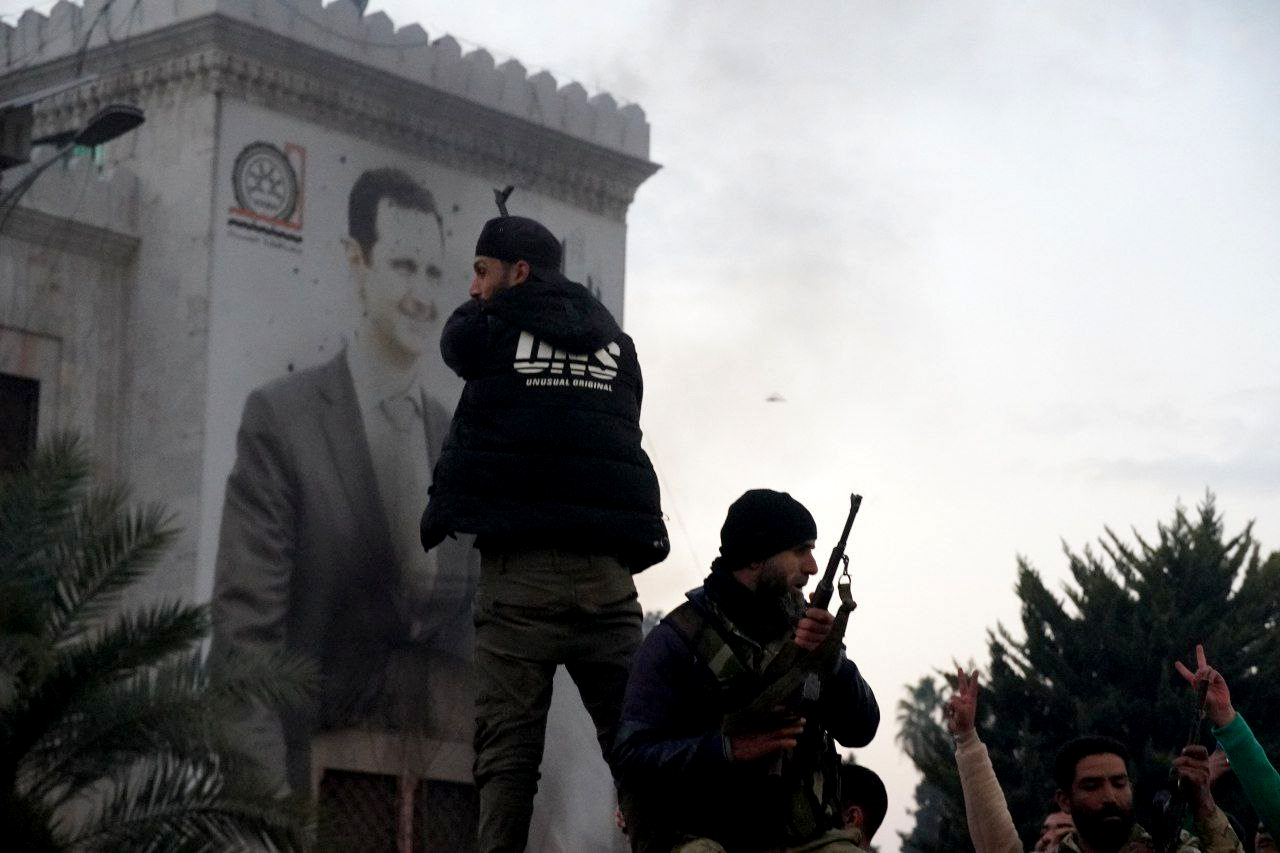Publications
Policy Paper, December 16, 2024

The dramatic events unfolding in Syria create a window of opportunity for Israel to enhance its security situation by intensifying the damage to Iran and its Axis of Resistance and aiming to fragment the continuity of the axis and make any future recovery difficult.
From Israel’s perspective, unlike in previous cases, the events in Syria are supported by a series of favorable developments that have emerged over the past year. These developments provide Israel with the opportunity to leverage its achievements against the Axis of Resistance. However, such a move requires a proactive approach to safeguard Israeli interests in the region—beyond simply weakening Iranian influence in Syria. This includes preventing extremist elements from acquiring strategic weapons, halting the transport of armaments, and blocking anti-Israel activity along the border by controlling positive elements there. While Israeli involvement in the Syrian crisis poses inherent risks, it is clear that the opportunities it presents outweigh these risks.
The Current Situation
The rebels’ declaration of the fall of the Assad regime after 54 years of rule opens a new chapter in Syrian history. It is likely that Syria will now enter a transitional period marked by instability and power struggles, which could result in several possible scenarios:
- A fragmented Syria, with various forces controlling different regions and engaging in frequent clashes;
- The adoption of a federated structure;
- The rise of a new regime within a unified Syrian framework.
Each of these possible scenarios would represent a significant blow to the Axis of Resistance, at least in the foreseeable future. As a central component of the axis, the Assad regime had until now posed a major strategic threat to Israel. Hezbollah’s force-building was made possible from Syrian territory. Nonetheless, despite Assad’s relative restraint over the past year amid Israel’s multi-front war, he was unwilling to sever his alliance with Iran. Given these developments, the current situation could present a unique opportunity for Israel to fracture the continuity of the Iranian-led Axis of Resistance and even establish an alternative structure within Syria that could further weaken and even dismantle the axis.
Furthermore, the current situation presents Israel with an opportunity to influence the future reality in Syria to its advantage, beyond advancing the goal of curbing Iranian influence.
While concerns about the absence of a central authority in Syria or the potential rise of extremist jihadi elements close to Israel’s border are valid, the military capabilities of the various rebel groups are far inferior to those of Iran and its proxies. Moreover, the main adversary of these rebels is the Assad–Iran–Hezbollah axis, along with other internal factors in Syria. As a result, Israel is unlikely to be a top priority for these groups in the near future, assuming that its extensive activity and control over Syrian areas near the border do not persist for an extended period of time.
Moreover, the rebels in the border area with Israel do not belong to or identify with the Islamist group Hayat Tahrir al-Sham but rather are remnants of the Free Syrian Army and Druze forces, which have had a positive attitude toward Israel and with whom Israel has been able to “work with” in the past.
Recommendations for Action
Israel should adopt a proactive approach in Syria, primarily by supporting efforts to change the regime and promoting contact and dialogue with positive elements on the ground to help secure Israel’s interests in the region. At the same time, direct involvement and significant military assistance to relevant elements should be deferred and considered based on the developments.
In the initial stage, the goal of engaging with favorable elements is to express support for them and signal that Israel is closely monitoring events and shares the aim of weakening the Axis of Resistance while assessing the possibility of providing assistance as circumstances unfold.
Meanwhile, Israel could explore providing “soft” aid, inspired by the “Good Neighbor” Initiative from 2016 to 2018 when Israel provided medical aid and food to Syrians during the civil war. The necessary mechanisms and some of the key contacts are still available, meaning that Israel would not need to start from scratch. In addition to engaging with the various players in Syria, Israel should maintain a deterrent military presence along the border and continue efforts to block Iranian presence in the area. Israel should also attack military targets containing strategic weapons that could fall into the hands of extremist groups. In this context, the “war between the wars” strategy should be reassessed and renewed.
Apart from local actors, Israel should also intensify the dialogue with Arab countries, including Egypt, Jordan, and the UAE, to foster strategic clarity and understand their priorities and concerns (including potential chaos in Syria and the rise of Islamist groups). Recruiting their support for the post-Assad regime will depend on presenting a rapid and realistic outline for a stable, agreed-upon political order in Syria. With Jordan, Israel should work with it to limit threats to its national security, including an influx of Syrian refugees, the potential closure of border crossings, and the spillover of violence and terror into Jordanian territory.
Conclusion
The dramatic developments in Syria are likely to continue for some time, with the country’s future remaining uncertain. It is unclear whether the collapse of the Assad regime will lead to Syria’s fragmentation into separate political entities and/or regions of foreign influence.
Therefore, Israel should continuously monitor the developments in Syria in light of its primary objectives of significantly reducing Iranian influence in Syria, preventing the rebuilding of Hezbollah’s capabilities in Lebanon, and safeguarding its northern border from threats. At the same time, Israel should aim to avoid direct involvement in military clashes within Syria while maintaining coordination with its allies, particularly the United States.
Members of the Iran and the Shiite Axis program at the Institute for National Security Studies contributed to this article.


